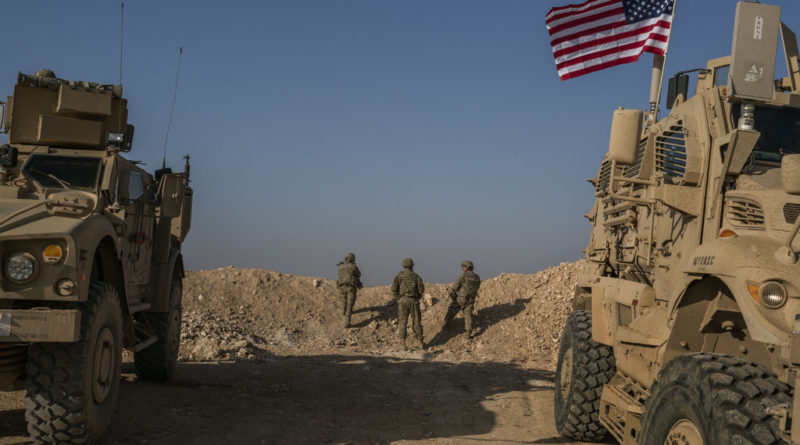The Importance of America’s Role in Syria
Long before Trump announced the defeat of ISIS, United States-backed Syrian Democratic Forces spent months fighting what is left of the Islamic State. Unfortunately, the SDF has been fighting an uphill battle due in large part to guerilla-style insurgent tactics such as, suicide bombers, sleeper cells, and kidnappings, deployed by ISIS. Syria’s civil war was entrenched in its seventh year and showed no signs of letting up.
Less than six months ago, President Trump announced troop withdrawal from Syria because ISIS had been defeated. Much like a game of Jenga, a call for complete United States forces withdrawal from Syria is more problematic than most realize. Aside from the fracture that reverberated through his administration, Trump’s call to leave Syria showed a brash populist stance that was heralded by Jeffersonian Republicans who would rather minimize American involvement abroad. However, down a few rows on the same side of the aisle, Jacksonian Republicans would rather opt to maintain a military presence and support allies abroad. While both Jeffersonian and Jacksonian Republicans can find common ground in their suspicion of humanitarian intervention and prefer unilateral actions by their president in foreign affairs.
Trump’s haphazard announcement caused serious fallout not only among party members or United States allies such as France and the United Kingdom, but also within his own administration (*cough* General Mattis *cough*). After working to try and change the president’s mind, Defense Secretary General Mattis submitted his resignation.
General Mattis served as Defense Secretary from January 2017 until December 2018 and warned of the volatility that could ensue should American pull troops out of Syria. From the possibility of a creating a place where ISIS can regroup and regain ground throughout the region to providing Iran with a major strategic advantage by allowing them to have access to supply routes and create inroads to avowed enemy, Israel.
There is no question that the repercussions of a troop drawdown in Syria would have grave implications for the delicate nature of geopolitics of the Middle East. A United States retreat from Syria, would cause United States allies, specifically, Kurdish forces, to consider abandoning the fight against ISIS and seek new partners such as, United States adversary, Syrian President Bashar al-Assad.
Fortunately, in February President Trump decided to reverse course on Syria and leave 400 troops on the ground. Approximately 200 troops will remain in Kurdish-controlled areas of Syria after the bulk of the United States force departs. Another 200 will remain at the remote al-Tanf garrison in the country’s southeast. Al-Tanf garrison is located in southern Syria and serves as a potential supply route through Iraq to Syria. Strategically speaking, maintaining a presence in al-Tanf garrison can aid in a top administration objective which is to slowly eliminate Iranian influence in the Middle East. While 400 troops is a far cry from the current 2000+ in Syria, the continued presence in strategic places provides the United States ability to maintain the status quo and keep allies such as the Kurds on board.
Since landing in Syria in late 2015, United States troops have been advising local Syria fighters to combat ISIS and would continue work with Syria fighters as well as monitor Iranian-backed militias in the area. The assistance United States troops have provided Syrian forces through air strikes and training, has been invaluable as the country enters into its ninth year of civil war.
In December the administration showed zero signs of an exit plan other than the arbitrary announcement by Trump. The backlash from leading foreign policy experts which lead the president to walk back his complete troop withdrawal has provided the military some breathing room to assemble a workable military policy in Syria.
There is no fast fix and while America can Amazon Prime most everything, it is impossible to Amazon Prime the eradication of ISIS. Nonetheless, the role America plays in Syria’s civil war is one of high importance. With more than 370,000 people dead, including 112,000 civilians the civil war has caused the displacement of roughly 13 million Syrians and has set the economy back by three decades. The toll Syria’s civil war has taken on the country is not lost on many foreign policy experts. While Assad has managed to cling to political power, his country has not only become a cash-strapped shell of its former self, but the infrastructure of electricity and oil production has been destroyed.
The future for Syria is still unfolding and while most of the country has been leveled thanks to the harsh realities of war, and Trump’s commitment to leaving a presence of American troops in key locations provides a beacon of hope for those fighting to save their country.

